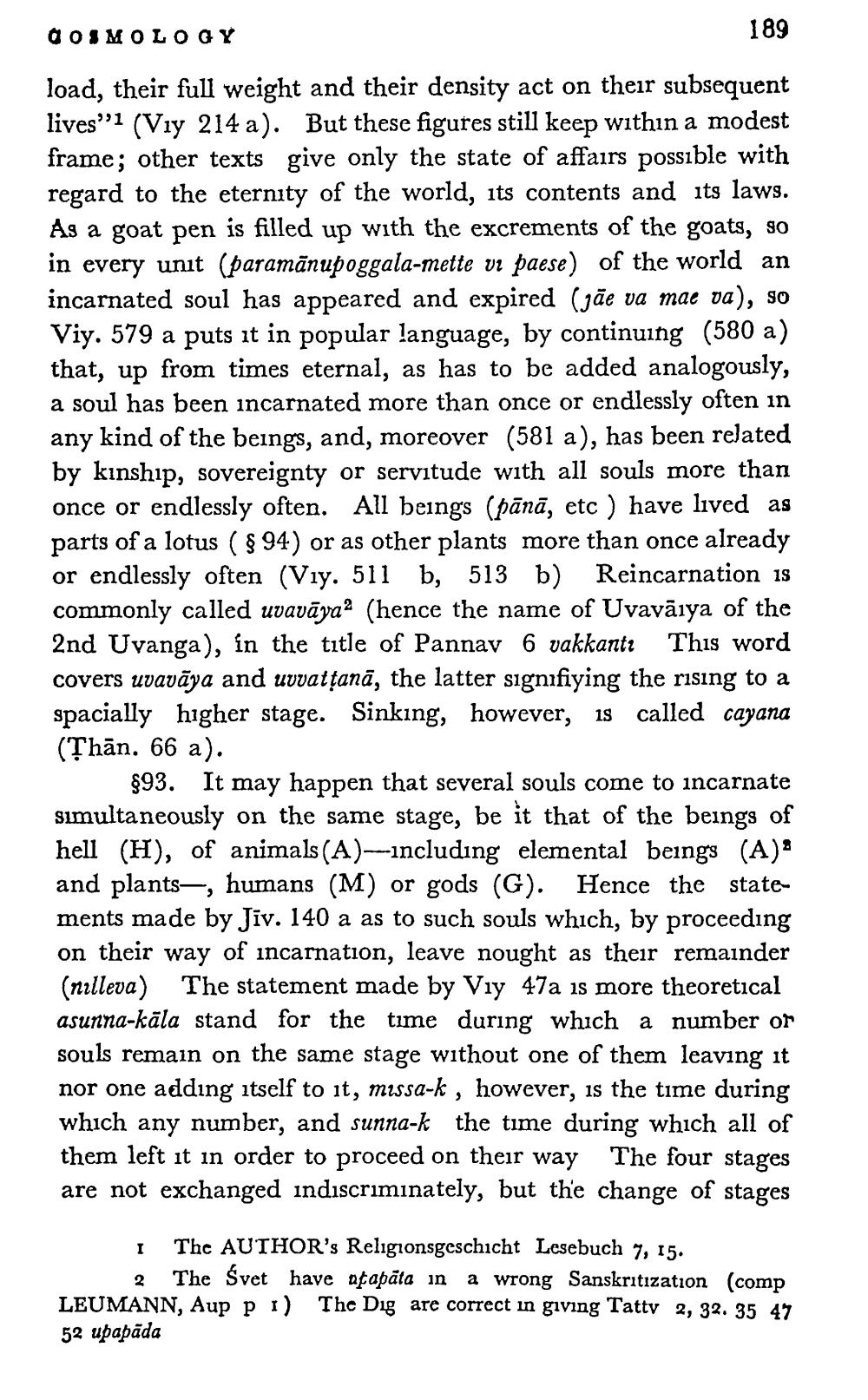________________
COSMOLOGY
189
load, their full weight and their density act on their subsequent lives”? (V1y 214 a). But these figures still keep within a modest frame; other texts give only the state of affairs possible with regard to the eternity of the world, its contents and its laws. As a goat pen is filled up with the excrements of the goats, so in every unit (paramānupoggala-mette vi paese) of the world an incarnated soul has appeared and expired (jãe va mae da), so Viy. 579 a puts it in popular language, by continuing (580 a) that, up from times eternal, as has to be added analogously, a soul has been incarnated more than once or endlessly often in any kind of the beings, and, moreover (581 a), has been related by kinship, sovereignty or servitude with all souls more than once or endlessly often. All beings (pānā, etc ) have lived as parts of a lotus ( $94) or as other plants more than once already or endlessly often (Viy. 511 b, 513 b) Reincarnation is commonly called uvavāyaa (hence the name of Uvavāıya of the 2nd Uvanga), in the title of Pannav 6 vakkant: This word covers uvavāya and uvvatțanā, the latter signifiying the rising to a spacially higher stage. Sinking, however, is called cayana (Thăn. 66 a).
$93. It may happen that several souls come to incarnate simultaneously on the same stage, be it that of the beings of hell (H), of animals (A)-including elemental beings (A) and plants-, humans (M) or gods (G). Hence the statements made by Jiv. 140 a as to such souls which, by proceeding on their way of incarnation, leave nought as their remainder (nilleva) The statement made by Viy 47a is more theoretical asunna-kāla stand for the time during which a number or souls remain on the same stage without one of them leaving it nor one adding itself to it, missa-k, however, is the time during which any number, and sunna-k the time during which all of them left it in order to proceed on their way The four stages are not exchanged indiscriminately, but the change of stages
1 The AUTHOR's Religionsgeschicht Lesebuch 7, 15.
2 The Śvet have atapata in a wrong Sanskritization (comp LEUMANN, Aup p 1) The Dig are correct in giving Tattv 2, 32. 35 47 52 upapāda




